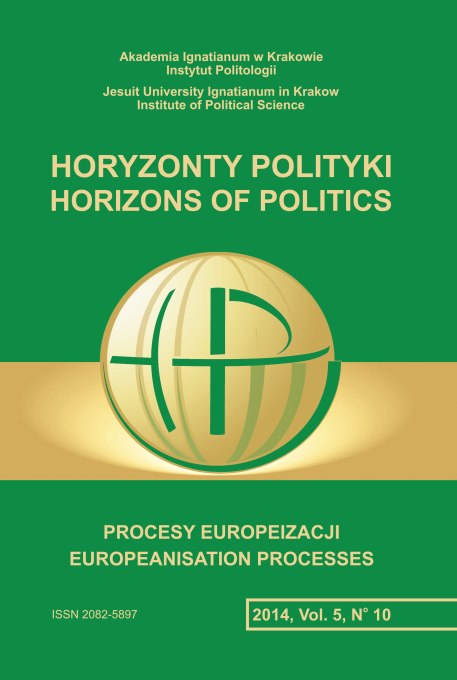Wypełnienie kryteriów z Maastricht przez Polskę – refleksja nad konwergencją realną i członkostwem w unii monetarnej
The Fulfillment of the Maastricht Criteria by Poland – Reflections on the Real Convergence and the Membership in the Monetary Union
Author(s): Liwiusz WojciechowskiSubject(s): Politics / Political Sciences
Published by: Uniwersytet Ignatianum w Krakowie
Keywords: real convergence; nominal convergence, Maastricht criteria, EMU
Summary/Abstract: Polish accession to the European Union in 2004 was inextricably associated with the commitment to adopt the euro. Some of the countries taking part in the EU 2004 enlargement like Slovenia, Slovakia, Estonia and Latvia have deepened cooperation in the framework of Economic and Monetary Union. On the other hand, there are still many Central and Eastern European countries that are members of the EU, including Poland, are outside of the EMU. Therefore, these countries retaining their own currencies, conducting an autonomous monetary policy which implies a temporary lack of full economic integration involving not only with those aspects but also, to the harmonization of fiscal policy. The purpose of this article is to assess the degree of fulfillment Maastricht criteria by Poland in based on current statistics. The analysis is therefore subject to nominal convergence. It was decided also to answer the question whether since Polish accession to the EU, there has been a real convergence also. Referring directly to the current state of the Polish economy and discussed the merits of the determinants and consequences of Polish participation in the euro zone, in the case of the nominal convergence criteria. Statistical data analysis suggests that Poland permanently did not meet the deficit criterion in 2000-2012. The rate of inflation is controlled, interest rates are only slightly higher than the criterion, the exchange rate is periodically unstable. While the share of government debt in GDP does not exceed 60%, we observe its gradual growth, which can dismiss the vision of the introduction of the euro in terms of inadequate economic policy.
Journal: Horyzonty Polityki
- Issue Year: 5/2014
- Issue No: 10
- Page Range: 169-190
- Page Count: 21
- Language: Polish

